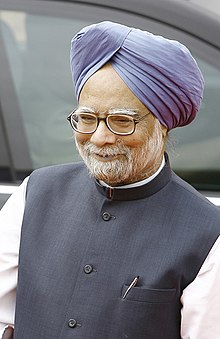Manmohan Singh and Demonetisation
On Thursday 24th November
2016, former Prime Minister Dr. Manmohan Singh criticized the Narendra Modi
government over its surprise move to demonetize rupees 500 and rupees 1000
currency. Dismissing the government’s defence that in the long run,
demonetization would be good for the country, Dr. Singh said for those saying
this is good in the long run, it reminded him of John Keynes words, “In the long run, we all are dead”.
EX-PM HITS BACK
Dr.
Singh further pointed out that in his opinion the way the scheme had been
implemented would hurt agricultural growth in our country, will hurt small
industry, will hurt all those people who are in the informal sector of the
economy and his own feeling was that the national income that is the GDP can
decline by 2% as a result of what had been done and that this was an
underestimate and not an overestimate. A very strong criticism of the scheme that
came across is the possible Draconian impact it can have on the rural economy.
India reportedly has somewhere around 10 lakh bank branches all over India. However,
there are 6.8 lakh villages alone and most of these villages are without a
bank. Rural economy mostly thrives on currency transactions. Most of the population
does not even have the slightest idea of banking and Jan Dhan scheme, digital payment stack and payment banks are still
in the nascent stage. He predicted that the agriculture as well as the unorganized
sector would be vastly hit. Transactions in the Indian agricultural system are heavily
dependent on cash and are hugely affected by demonetization. Many farmers have
insufficient cash to purchase seeds, fertilizers, pesticides needed for the plantation
of rabbi crops in November. Dr. Singh
said that the Prime Minister has said that we should wait for 50 days and 50
days is a short period. But for those who are poor and from the deprived
sections of the society, even 50 days’ torture can bring about disastrous
effects. The poor do not have black money. They work hard to earn two square
meals and do not have sufficient savings to deposit in any bank. They are the
people who are most affected by this sudden decision. How can one expect the
maids, small shopkeepers, chaiwallahs to leave their work and stand in long and
time consuming queues?
CREATIVE DESTRUCTION
Joseph Alois Schumpeter was an
Austrian born American economist and political scientist, one of the most
influential economists of the 20th century. Schumpeter popularized
the term “creative destruction” in economics. It is a theory of economic
innovation and business cycle. In simple words, creative destruction is a
process through which something new brings about the demise of whatever existed
before. We can cite the example of smart phone which killed the market for not
only regular phones but also MP3 players, wristwatches, calculators, voice
recorders etc. The implication is that although the actions may be perceived as
injurious, they will enable a transformation of business. Hence demonetization
aims to make our economy cashless by making the old 500 and 1000 rupee notes as
non-legal tender. The main advantage of a cashless society is that a record of
all economic transactions through electronic means makes it almost impossible
to sustain black market or underground economies that prove damaging to
national economy. A recent study had pegged India’s black market economy at
over 30 lakh crores or about 20% of total GDP. This is even bigger than the GDP
of countries like Thailand and Argentina. The black money holders are now left
with just two options- deposit the money in banks or burn all of it. In the
first case the question arises that how did they earn that income? Their files
would be subjected to scrutiny and a minimum tax of 60% would be payable on the
declared amount if it is found to be undisclosed previous income.
WRITER’S OPINION
What our ex-Prime Minister Dr. Singh
about the decline in the GDP by 2% is quite predictable and natural as
demonetization is a big and bold move on the part of the Modi government and
our country, being so vast and the second largest populated country in the
world, it will definitely take time for the economy to stabilise. [Editor’s Note: A UN report recently stated that the Indian GDP
is predicted to grow normally at 7.6% this year.] Our ex-Prime Minister pointed
out that the poor people are feeling the heat of this move and questioned the
benefit of such a painful exercise.
I
feel that this would lead to the government’s massive revenue generation. It
would help the government spend huge amount of money on building infrastructure
and making public services more available. The revenue generation would
definitely help in enhancing public investment. The demonetization is also
going to have a favourable impact as there will be surge in bank deposits and
utilization of Jan Dhan accounts.
Unorganized builders and secondary property market would be adversely impacted following
the government’s decision. Housing prices could witness downward pressure which
in turn will revive demand in the sluggish housing segment. Our country is also
on the way to cashless economy.
While concluding his speech in uncharacteristically
strong words, the mild-mannered Dr. Singh called demonetization “organized loot
and legalized plunder” by calling the move unconstitutional wherein people are
allowed to deposit money but can withdraw their own money only up to a certain
limit. He also added that it was a monumental management failure.
Had the implementation been better
then what it is now, had the government kept enough rupees 100 deposits to keep
the cash economy rolling, the furore that the opposition is creating would not
have been there. Overall, the decision to ban ₹500 and ₹1000 was taken with a
good intention. The decision is right but there are gaps in the implementation.
- Nupur Tamane


Comments
Post a Comment